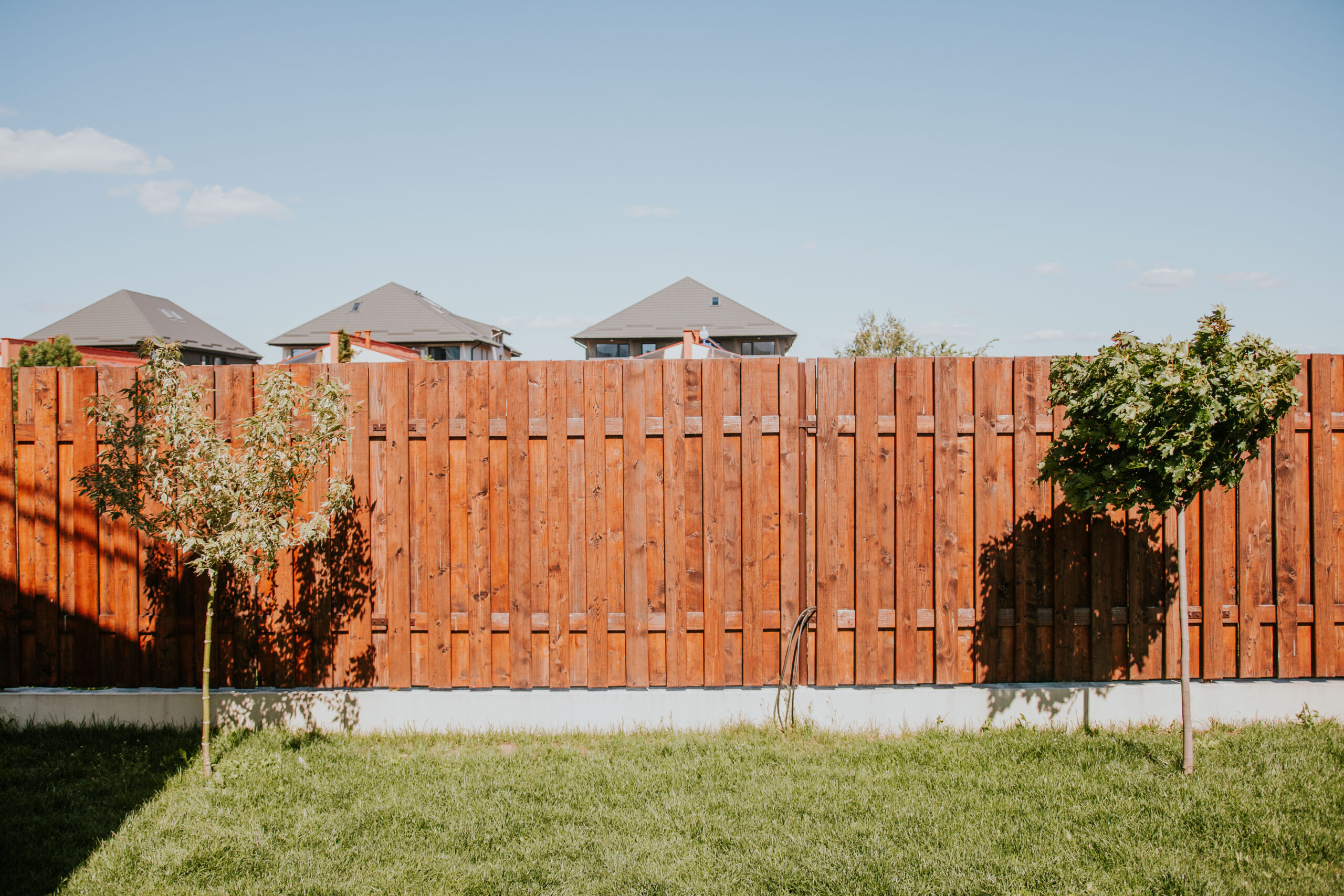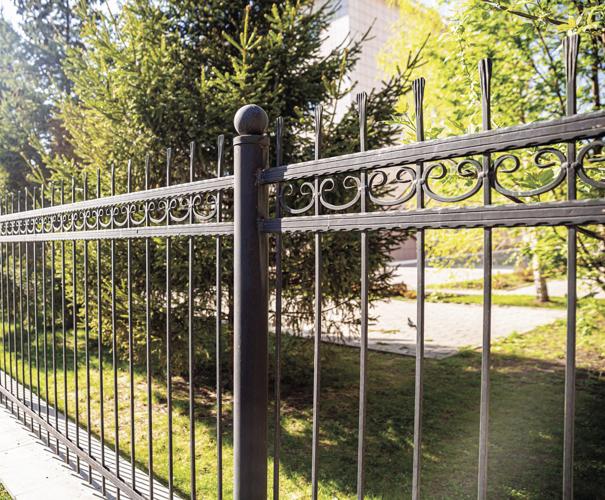All Categories
Featured
Installing a fence on your building can add privacy, protection, and visual allure, yet before you start digging holes and setting articles, it's vital to recognize whether you require a permit. Not getting the required licenses might result in fines or the demand to get rid of the fencing.
Why Are Allows Essential for Fence Installment? Licenses are very important for guaranteeing that your fence abides by neighborhood zoning regulations and building regulations. These laws assist make sure the security of your home and the surrounding location. Furthermore, permits avoid disagreements with neighbors or neighborhood authorities, especially when it involves building lines, height restrictions, and overall layout.
Oftentimes, neighborhood authorities require permits to regulate points like presence at crossways or the closeness of a fencing to public areas like roads or pathways. Licenses additionally aid make sure that fencings are installed appropriately and safely, especially when it pertains to high fences or distinct products.
Typical Sorts Of Licenses for Fencing Installment. The kind of fence you intend to install and your area will identify which licenses are required. Right here are the most usual kinds:
Structure License. A building permit is normally needed for fences that go beyond particular height limitations (commonly above 6 feet), are situated near a public roadway or walkway, or are made from details materials. Building allows guarantee that the structure satisfies neighborhood building ordinance, including security requirements.
Zoning Permit. Zoning licenses are usually called for to make certain that your fencing adheres to neighborhood zoning legislations. Zoning regulations can specify where a fence can be put on your home (e.g., along building lines or ahead lawns), along with set limitations on fence height. These legislations are made to prevent obstructions that could influence traffic safety and security or neighborhood aesthetics.
![]()
Setback License. In some areas, you might need a setback authorization to place your fencing a certain range from residential property lines, roads, or utilities. Obstacles are planned to preserve appropriate space between frameworks and residential or commercial property limits, lowering possible problems with neighbors or public infrastructure.
Homeowners Association (HOA) Approval. You will likely need authorization from the HOA prior to installing a fence if your property is component of an area governed by a Homeowners Association (HOA) HOA standards commonly control the design, elevation, materials, and also color of fencings, guaranteeing that they match the general visual of the neighborhood.
The Process for Acquiring a Fencing Permit. To get a fencing license, you usually require to call your neighborhood city or region workplace. Many areas have a structure division or preparation workplace where you can look for permits. The process involves finishing an application and giving thorough information regarding your recommended fence, consisting of:
Fence style (products, elevation, style) Place on the residential or commercial property. Home line information (for accurate placement) In many cases, a website strategy revealing the suggested fence's placement will certainly be called for. You might additionally require to pay a permit cost, which can differ based on place and the intricacy of the project.
When you send your application, the local authorities will review it to ensure the fencing adheres to neighborhood laws. Relying on your place, you might likewise require to schedule an inspection or enable for a residential or commercial property study.
When Do You Not Required a License? In many cases, a permit may not be needed. Usually, you may not need a permit if:
![]()
The fence is under a specific height (usually 3-4 feet for front yards) You're replacing an existing fencing with the same kind and height. The fence is temporary (such as a garden fencing) Nonetheless, it's constantly a great concept to inspect with your local building or zoning department to confirm the demands, as guidelines can vary.
Effects of Not Getting a License. Stopping working to obtain the required permits can bring about numerous problems. One of the most typical consequence is being fined or asked to eliminate the fence. Sometimes, you may need to re-install the fence according to code, which can be pricey and lengthy. Furthermore, not complying with the correct permitting procedure can produce troubles with neighbors, specifically if your fence expands beyond your residential or commercial property line or doesn't satisfy elevation or design requirements.
Verdict. Prior to setting up a fencing, make certain you're mindful of the local laws and whether you require a license. By obtaining the appropriate authorizations, you'll guarantee that your fence is lawfully compliant, safe, and complimentary from future difficulties.
Why Are Allows Essential for Fence Installment? Licenses are very important for guaranteeing that your fence abides by neighborhood zoning regulations and building regulations. These laws assist make sure the security of your home and the surrounding location. Furthermore, permits avoid disagreements with neighbors or neighborhood authorities, especially when it involves building lines, height restrictions, and overall layout.
Oftentimes, neighborhood authorities require permits to regulate points like presence at crossways or the closeness of a fencing to public areas like roads or pathways. Licenses additionally aid make sure that fencings are installed appropriately and safely, especially when it pertains to high fences or distinct products.
Typical Sorts Of Licenses for Fencing Installment. The kind of fence you intend to install and your area will identify which licenses are required. Right here are the most usual kinds:
Structure License. A building permit is normally needed for fences that go beyond particular height limitations (commonly above 6 feet), are situated near a public roadway or walkway, or are made from details materials. Building allows guarantee that the structure satisfies neighborhood building ordinance, including security requirements.
Zoning Permit. Zoning licenses are usually called for to make certain that your fencing adheres to neighborhood zoning legislations. Zoning regulations can specify where a fence can be put on your home (e.g., along building lines or ahead lawns), along with set limitations on fence height. These legislations are made to prevent obstructions that could influence traffic safety and security or neighborhood aesthetics.

Setback License. In some areas, you might need a setback authorization to place your fencing a certain range from residential property lines, roads, or utilities. Obstacles are planned to preserve appropriate space between frameworks and residential or commercial property limits, lowering possible problems with neighbors or public infrastructure.
Homeowners Association (HOA) Approval. You will likely need authorization from the HOA prior to installing a fence if your property is component of an area governed by a Homeowners Association (HOA) HOA standards commonly control the design, elevation, materials, and also color of fencings, guaranteeing that they match the general visual of the neighborhood.
The Process for Acquiring a Fencing Permit. To get a fencing license, you usually require to call your neighborhood city or region workplace. Many areas have a structure division or preparation workplace where you can look for permits. The process involves finishing an application and giving thorough information regarding your recommended fence, consisting of:
Fence style (products, elevation, style) Place on the residential or commercial property. Home line information (for accurate placement) In many cases, a website strategy revealing the suggested fence's placement will certainly be called for. You might additionally require to pay a permit cost, which can differ based on place and the intricacy of the project.
When you send your application, the local authorities will review it to ensure the fencing adheres to neighborhood laws. Relying on your place, you might likewise require to schedule an inspection or enable for a residential or commercial property study.
When Do You Not Required a License? In many cases, a permit may not be needed. Usually, you may not need a permit if:

The fence is under a specific height (usually 3-4 feet for front yards) You're replacing an existing fencing with the same kind and height. The fence is temporary (such as a garden fencing) Nonetheless, it's constantly a great concept to inspect with your local building or zoning department to confirm the demands, as guidelines can vary.
Effects of Not Getting a License. Stopping working to obtain the required permits can bring about numerous problems. One of the most typical consequence is being fined or asked to eliminate the fence. Sometimes, you may need to re-install the fence according to code, which can be pricey and lengthy. Furthermore, not complying with the correct permitting procedure can produce troubles with neighbors, specifically if your fence expands beyond your residential or commercial property line or doesn't satisfy elevation or design requirements.
Verdict. Prior to setting up a fencing, make certain you're mindful of the local laws and whether you require a license. By obtaining the appropriate authorizations, you'll guarantee that your fence is lawfully compliant, safe, and complimentary from future difficulties.
Latest Posts
Why Chicago Drivers Trust Montclare Auto Repair for Dependable Service and Significant Savings
Published en
1 min read
Explore Special Auto Repair Specials in Chicago at Montclare Auto Repair
Published en
1 min read
Explore the Leading Auto Repair Discounts in Montclare, Chicago
Published en
1 min read
More
Latest Posts
Why Chicago Drivers Trust Montclare Auto Repair for Dependable Service and Significant Savings
Published May 26, 25
1 min read
Explore Special Auto Repair Specials in Chicago at Montclare Auto Repair
Published May 25, 25
1 min read
Explore the Leading Auto Repair Discounts in Montclare, Chicago
Published May 24, 25
1 min read